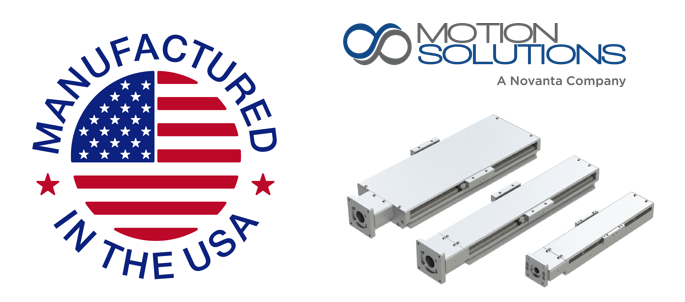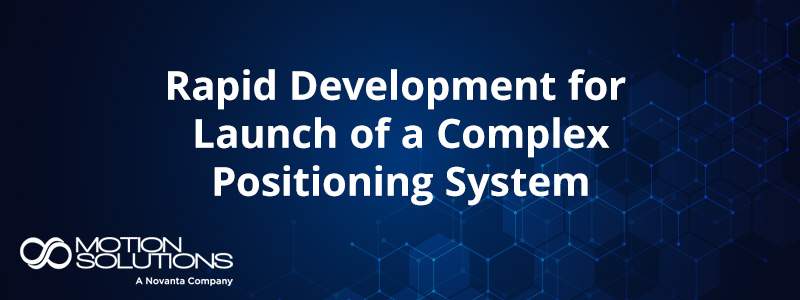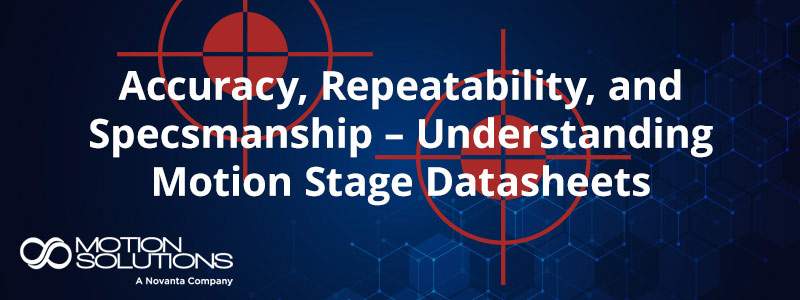Editor’s note: With the recent acquisition of Microscan Systems by our partner Omron, we sat down with company CEO Scott Summerville. Microscan specializes in traceability solutions for broad range of industries, including manufacturing, logistics, and services. Given the increasing importance of source and quality tracking in our global economy, we thought it was a chance to learn more about the technology and the role he expects it to play going forward.
Motion Solutions: What is traceability and how is it being applied?
Scott Summerville: Traceability technology allows manufacturers to track and trace products and components throughout the manufacturing process and supply chain by applying an RFID tag, a bar code, or some type of mark to identify each individual SKU or component.
MOSO: Why is traceability important?
SS: Traceability is becoming more and more critical for customers for a variety of reasons that include regulatory compliance, safety, anti-counterfeiting, and cost and quality. More and more customers want to engage in line-item traceability. They want to track every SKU and component throughout the manufacturing process and the supply chain. It is a rapidly growing part of the factory automation market.
MOSO: Who are Omron Microscan’s typical customers?
SS: Traceability cuts across every industry. However, the big three for Omron are automotive, digital electronics, and the food and commodity industry. Food and commodity encompasses food and beverage, pharmaceutical, and more. The US FDA has mandated traceability in pharmaceutical and medical device manufacturing. There are standards in automotive, although they aren’t necessarily regulated by the government. Food and commodity manufacturing are other areas with product traceability initiatives, either defined by industry groups or government regulations.
MOSO: What are some ways manufacturers can leverage traceability that go beyond regulatory compliance?
SS: Manufacturers are using traceability to raise manufacturing yield. It enables process control and allows them to identify manufacturing issues at the product and component level. We have electronics customers who are using traceability to facilitate production. In other words, the marking on the part can bring up instructions for how to process it. A lot of electronics manufacturers are using bar codes and identifiers to state how a printed circuit board should be populated, for example. When someone orders a vehicle online, the order gets downloaded to manufacturing. Barcodes are generated and used to direct the production of the vehicle and its parts throughout the manufacturing process.
MOSO: What are some of the challenges around traceability?
SS: The primary challenges are a result of the drive to mark and track every component. There is the need to produce smaller and smaller marks because components are getting smaller and smaller. We have a requirement for very resilient marking and reading of codes because products with marks may go into very harsh environments. We need to ensure that the quality of the code is compliant and good and pristine when it leaves the factory so that the product can be tracked throughout the supply chain.
MOSO: What does the combination of Omron and Microscan technology do to serve customers?
SS: Now that we’re part of Omron, the customer can access a robust, integrated portfolio that goes from individual sensors and controls to full traceability solutions. It’s all part of building the smart factory of the future.
MOSO: Why are you excited about the Motion Solutions – Omron Microscan partnership? How will this partnership be of benefit to customers?
SS: In terms of the delivery of a traceability solution, it is really important that we partner with very capable system integrators and channel partners. In addition to distributing components, Motion Solutions understands the full needs of the customer and can help them find a solution that best addresses their problem.
MOSO: What keeps you up at night?
SS: I think there are concerns as to what is going to happen in the next year to two years. We haven’t had a recession since 2008, which is an unprecedented run of positive economic activity. There is always some concern when you start applying tariffs because you just don’t know what the unintended consequences are going to be. I think anyone who is running a business has got to be concerned with the current geopolitical climate around tariffs and trade.



